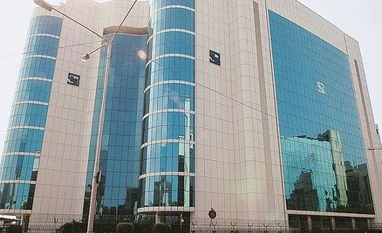Sebi and RBI are working on a more robust system for reporting of trades done by FPIs and ensure compliance with sectoral caps amid confusion over their exposure breaching the 74 per cent limit in HDFC Bank.
A day after allowing FPIs to buy shares of HDFC Bank, the Reserve Bank of India (RBI) on February 17 restored the cap as the exposure crossed the prescribed 74 per cent threshold.
In a rare instance, the ceiling was restored during market hours on February 17 amid overseas entities going on a buying spree of HDFC Bank shares. This has resulted in confusion over execution of trade by some Foreign Portfolio Investors (FPIs) at that time.
Sources said Sebi and RBI are now working on ways to put in place a more stronger system to keep a close tab on trading in shares by FPIs, primarily to ensure the relevant sectoral limit for them are complied with.
Currently, FPI exposure to banking companies are capped at 74 per cent.
The confusion related to HDFC Bank shares has thrown up a peculiar situation for the two watchdogs as well as the stock exchanges, which actually enforce the limits and stop foreign entities from buying shares in case the cap is reached.
Sources said in the present case, there is a likely scenario wherein a few trades by FPIs might have already resulted in the 74 per cent being breached.
Since most trading happens at high speeds, the time difference between RBI ordering stopping of FPI investments and actual operationalisation of the direction would be crucial since a few seconds could result in huge investments.
According to sources, the regulators are looking at how to address the issues of FPI orders placed for HDFC Bank during the time when buying restrictions were restored.
Among the options are annulling the trade orders or making them proprietary trades, whereby the share purchases would be part of the broker's portfolio, sources said.
While these options are practical, implementing them might spark ethical concerns and possibility of litigation as some FPIs might lose out in execution of the trades.
Ironically, there are already concerns in certain quarters about high frequency trades and whether such a mechanism is prone to manipulation.
RBI monitors the ceilings on FPI/NRI (Non Resident Indians)/ PIO (Person of Indian Origin) investments in Indian companies on a daily basis and has fixed the cut-off points two percentage points below the actual ceiling.
A day after allowing FPIs to buy shares of HDFC Bank, the Reserve Bank of India (RBI) on February 17 restored the cap as the exposure crossed the prescribed 74 per cent threshold.
In a rare instance, the ceiling was restored during market hours on February 17 amid overseas entities going on a buying spree of HDFC Bank shares. This has resulted in confusion over execution of trade by some Foreign Portfolio Investors (FPIs) at that time.
More From This Section
The limits on foreign investments in banks are set by the RBI while the trading aspects come under the Securities and Exchange Board of India (Sebi).
Sources said Sebi and RBI are now working on ways to put in place a more stronger system to keep a close tab on trading in shares by FPIs, primarily to ensure the relevant sectoral limit for them are complied with.
Currently, FPI exposure to banking companies are capped at 74 per cent.
The confusion related to HDFC Bank shares has thrown up a peculiar situation for the two watchdogs as well as the stock exchanges, which actually enforce the limits and stop foreign entities from buying shares in case the cap is reached.
Sources said in the present case, there is a likely scenario wherein a few trades by FPIs might have already resulted in the 74 per cent being breached.
Since most trading happens at high speeds, the time difference between RBI ordering stopping of FPI investments and actual operationalisation of the direction would be crucial since a few seconds could result in huge investments.
According to sources, the regulators are looking at how to address the issues of FPI orders placed for HDFC Bank during the time when buying restrictions were restored.
Among the options are annulling the trade orders or making them proprietary trades, whereby the share purchases would be part of the broker's portfolio, sources said.
While these options are practical, implementing them might spark ethical concerns and possibility of litigation as some FPIs might lose out in execution of the trades.
Ironically, there are already concerns in certain quarters about high frequency trades and whether such a mechanism is prone to manipulation.
RBI monitors the ceilings on FPI/NRI (Non Resident Indians)/ PIO (Person of Indian Origin) investments in Indian companies on a daily basis and has fixed the cut-off points two percentage points below the actual ceiling.
)